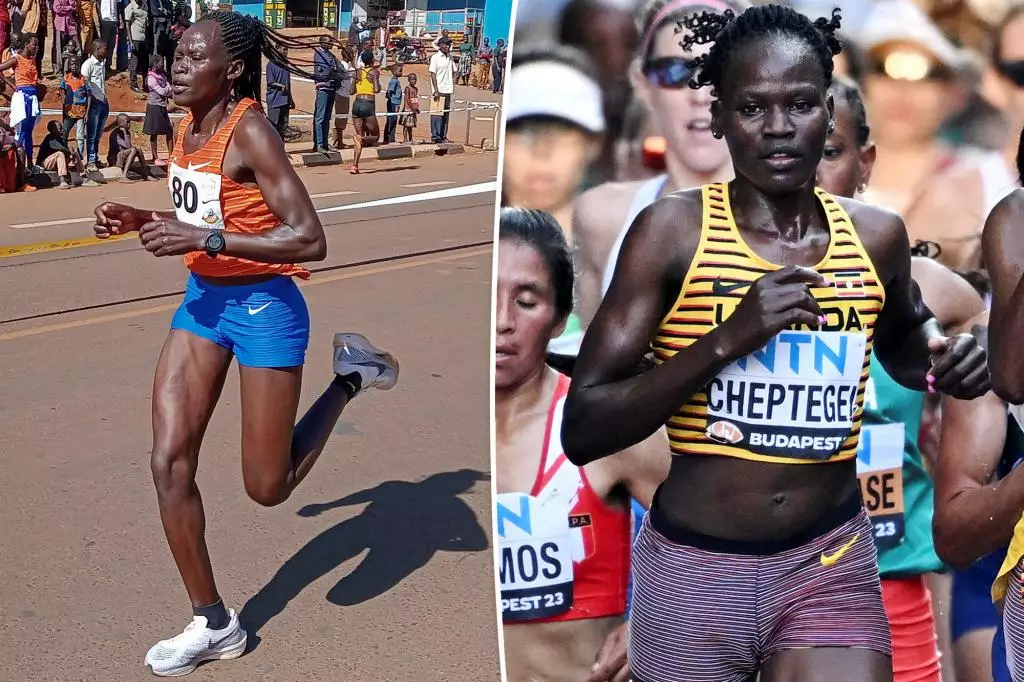Rebecca Cheptegei, a talented Ugandan Olympic athlete, tragically passed away at the age of 33 after sustaining severe burns in an attack by her partner. The incident left her with burns on 80% of her body, ultimately leading to her untimely death. Cheptegei had been admitted to a Kenyan hospital where she was receiving treatment, but unfortunately, her organs failed, and she succumbed to her injuries early in the morning. This devastating loss has shaken the sports community and raised urgent concerns about the prevalence of gender-based violence.
Cheptegei’s father, Joseph Cheptegei, expressed his grief and frustration over the senseless act that took his daughter’s life. He emphasized the importance of holding the perpetrator accountable and ensuring that justice is served. The assailant, Dickson Ndiema, who was also injured in the incident, was reported to have purchased gasoline, which he used to set Cheptegei on fire during a heated argument. The lack of immediate action by security officials has sparked outrage and calls for stricter measures to prevent such atrocities.
The harrowing incident involving Rebecca Cheptegei is not an isolated case in the world of sports. Tragedies like these have surfaced in the past, shedding light on the dark reality of gender-based violence. From Ugandan Olympic runner Benjamin Kiplagat to Kenyan-born athlete Damaris Muthee, the list of athletes who have fallen victim to such acts continues to grow. These distressing events serve as a stark reminder of the urgent need to address and combat gender-based violence in all spheres of society.
In response to Cheptegei’s death, officials and sporting bodies have condemned the heinous act and called for tangible steps to tackle gender-based violence. The Uganda Athletics Federation expressed its grief and denounced domestic violence, urging for justice to be served. Similarly, the Uganda Olympic Committee President and Kenya’s Sports Minister emphasized the need for collective efforts to eradicate gender-based violence. These tragic incidents serve as a wake-up call for authorities and communities to take proactive measures to protect individuals from harm and ensure a safer environment for all.
The tragic death of Rebecca Cheptegei serves as a somber reminder of the pervasive issue of gender-based violence that continues to plague our society. As we mourn the loss of a talented athlete and a beloved individual, we must also reflect on the broader implications of such acts of violence. It is imperative that we work collaboratively to address root causes, raise awareness, and implement effective measures to prevent similar tragedies in the future. May Rebecca Cheptegei’s legacy inspire meaningful change and pave the way for a future free from gender-based violence.

